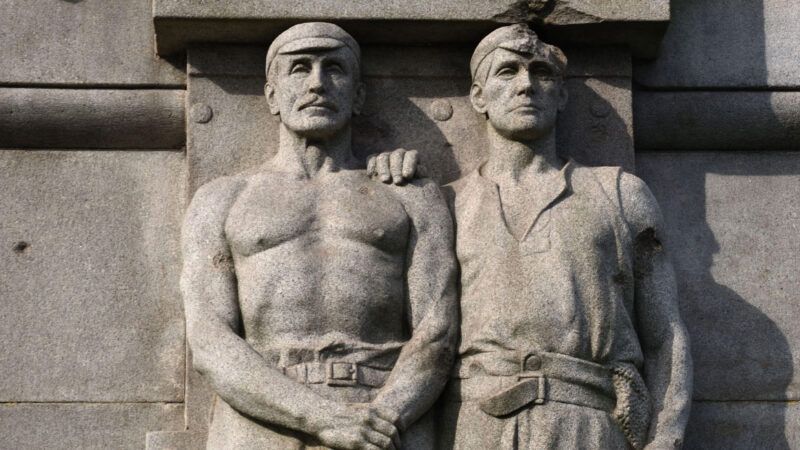What Is the 'Working Class'?
When even most upper-income Republicans say they're working class, the term has become meaningless.

Republicans and Democrats alike want to be seen as champions of the working class—understandably so, since that cohort of Americans is understood as essential to winning several presidential swing states.
But who or what is the "working class"? The answer depends largely on who you are asking, and the term's slipperiness might explain its outsize power in modern politics.
The term has been in use for well over 200 years. It emerged from class-obsessed British culture during the Industrial Revolution as a way to distinguish the political interests of factory workers and other wage-earning laborers from the interests of the upper class and the traditional lower class (such as farmers and peasants).
Today, political scientists and pollsters use "the working class" to describe members of the work force who do not have a college degree. By that definition, the number of working-class Americans has been declining as the country has grown wealthier and more educated. According to the Census Bureau, nearly 38 percent of Americans had at least a bachelor's degree in 2022, up from just 17 percent in 1980.
There's a major exception to that common definition, however. Marxist scholars use "working class" quite differently—typically encompassing anyone who depends on wages to survive, regardless of their educational experience.
In nonacademic contexts, the term gets even murkier. According to a Pew Research Center survey taken in May, 54 percent of Americans say "working class" describes them "very" or "extremely well." Notably, self-identified Republicans are more likely to claim the "working class" label than Democrats are, by a margin of 62 percent to 48 percent. The results are even more perplexing when socioeconomic level is considered: 59 percent of upper-income Republicans say they are working class, compared to just 33 percent of high-earning Democrats.
Have wealthy conservatives embraced Marx's view of class struggle? Probably not. But this trend does show how disconnected the idea of a "working class" has become from the traditional view of put-upon laborers with little education and fewer economic prospects.
Fundamentally, any attempts at organizing politics through the lens of "class" will be somewhat disingenuous since it is individuals who think, act, and vote according to their own values and opinions. Even so, collectively assessing the opinions of individuals within certain income strata or geographic locations can have some political value.
"Working class" as a concept, though, has now become so broad and subjective as to be effectively meaningless. This makes it the perfect vehicle for politicians trying to sell a broad but effectively meaningless message.


Show Comments (21)